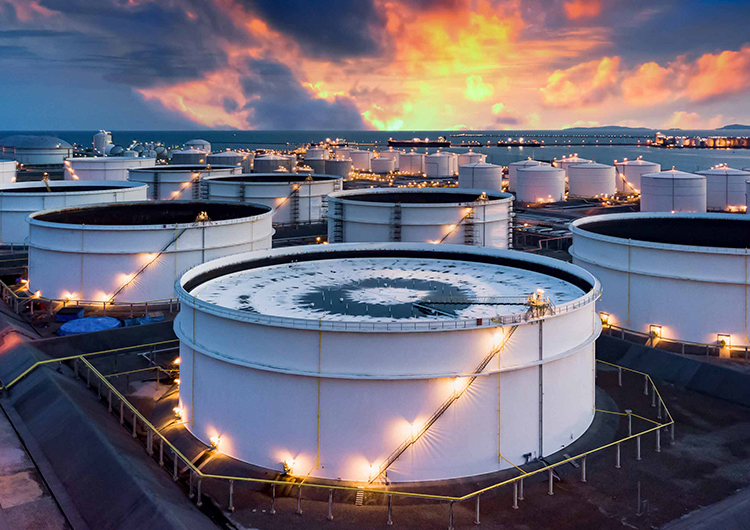The Government of the Kingdom of Saudi Arabia explained that the Organisation of the Petroleum Exporting Countries (OPEC) Plus’s decision to reduce oil production was a unanimous resolve among its members.
OPEC Plus or OPEC+ consists of 23 oil-exporting countries namely Algeria, Angola, Congo, Equatorial Guinea, Gabon, Iran, Iraq, Kuwait, Libya, Nigeria, Saudi Arabia, the United Arab Emirates and Venezuela, Azerbaijan, Bahrain, Brunei, Kazakhstan, Malaysia, Mexico, Oman, Russia, South Sudan and Sudan.
Speaking to The Bruneian, the Royal Embassy of Saudi Arabia of Brunei Darussalam’s Deputy Head of Mission, Safar Al Safar said that the decision, which was made on 5 October 2022, was due to economical reasons.
“OPEC’s decision was issued unanimously and based on (the) consensus (of) technical (and) objective grounds (and not) from politicisation,” he said.
Al Safar said that with the risks of decreasing reserve production capacity, along with the increasing possibility of a slowdown in the global economy due to closures in China, raising interest rests and supply chain disruptions, proactive steps need to be taken to protect energy stabilisation before drastic measures need to be implemented.
In a statement released by the Kingdom’s Ministry of Foreign Affairs, they affirmed that the outcomes of the OPEC+ meetings are adopted through consensus among member states and not based on a unilateral decision by a single country.

“No country in the group, no matter how influential it is, can act outside the framework of the agreement. Such action would undermine the credibility, cohesion, and efficacy of the group,” he stressed.
The prospects provided by any relevant authorities, including the United States (US) Energy Information Administration (ELA), indicate that the oil markets would witness a large surplus in supply in the coming period.
“Therefore OPEC+ took its last decision to reduce production in order to achieve a balance between supply and demand, as OPEC+ aims to balance the market in a manner that serves everyone and it does not target a specific price or price range,” said Al-Safar.
He said that close monitoring of the development, supply and demand and response in a pre-emptive and proactive manner ensures balance, and promotes stability while providing the visibility and guidance that the market needs.
“This approach has proven effective in the oil market. It has contributed to its stability, considering the impact of the other factors, which are outside the control of OPEC members or the Kingdom.”
Without announcement from OPEC+ on any substantial, specific measures in line with the market data, the market will be affected and cause volatility, negatively impacting the credibility and cohesion of the group as well as the Kingdom’s leading role in OPEC+ and oil markets, according to the Deputy Head of Mission.

“This would make it difficult for the Kingdom along with the group to address complicated issues that might arise in the future. It would undermine the reliability of the oil industry and the stability of the market, mid-term and long term (therefore) negatively impacting the global economy.”
According to him, if market data and conditions change, OPEC+ members are equipped with the tools and resources to respond by raising, cutting or maintaining production.
“These tried and tested tools have proven eminently effective in the recent past.”
Furthermore, Al Safar shared that forecasts from major reputable organisations including the ELA suggest that oil markets will have a supply surplus in Q4 this year and the whole of next year.
“These forecasts reflect the base scenario, which does not assume economic contraction. In the case of economic contraction, the surplus would be exacerbated. Therefore, OPEC plus has taken its most recent decision to cut production to achieve the balance between supply and demand in the market.”
“An oversupply would hinder the investments required to maintain the flow of supplies to the market. Investors would hesitate to invest or refrain from investing as their investments in the oil market might not be profitable in the future,” added Al Safar.
The Deputy Head of Mission further explained that OPEC’s decision to cut oil production aims to protect the global economy from the fluctuating oil market.
“Addressing economic challenges requires the establishment of a constructive, non-politicised dialogue and a wise and rational consideration of what serves the interests of all countries.”
“The Kingdom’s government, through its continuous consultation with the US administration, has made it clear that all economic analyses indicate that postponing the decision for a period of one month, as has been proposed previously, will have negative economic costs,” he added.
The Foreign Ministry’s statement reiterated that decisions are made independently in accordance with established independent practices followed by international organisations.
While the Kingdom strives to preserve the strength of its relations with all friendly countries, it affirms its rejection of any dictates, actions, or efforts to distort its benevolent objectives to protect the global economy from oil market volatility.
“Resolving economic challenges requires the establishment of a non-politicised constructive dialogue, and to wisely and rationally consider what serves the interest of all countries,” added the statement.
THE BRUNEIAN | BANDAR SERI BEGAWAN



